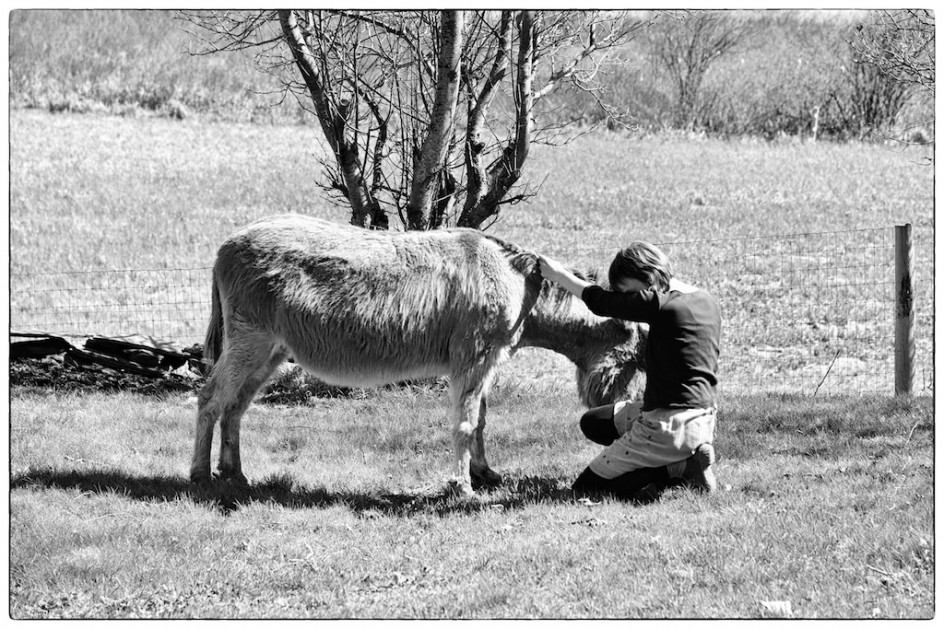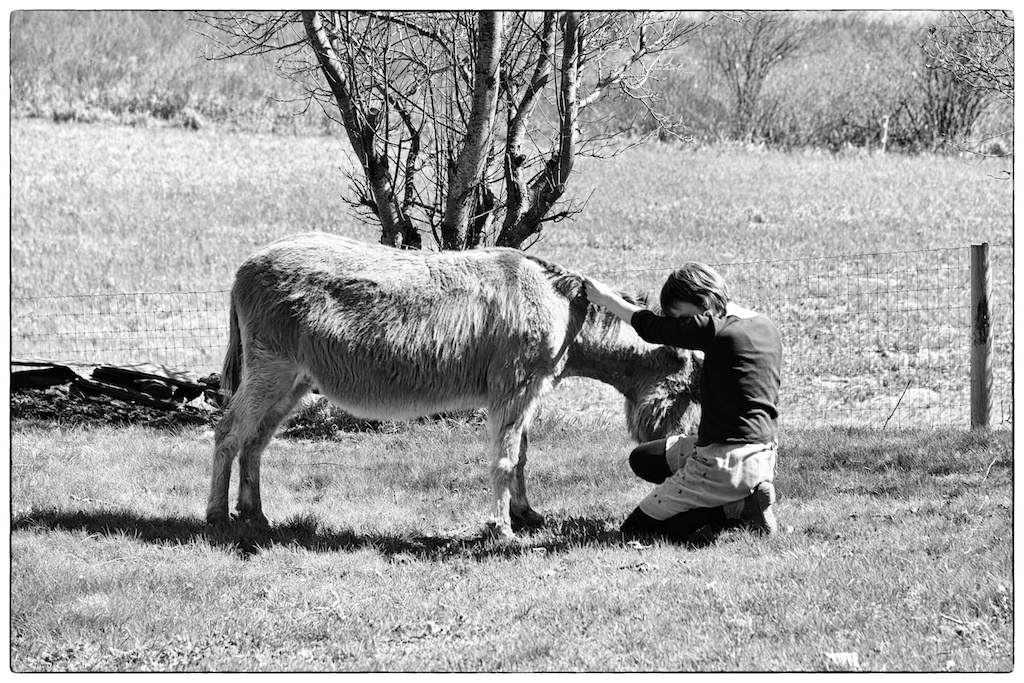
A few days ago, I wrote about fantasy animals and I got a lot of very thoughtful responses to that post. One was from Eve Marko who asked “what shift is necessary to go from seeing animals as meeting fantasy needs to what you refer to as “spirit dogs,” or spiritual guides? Usually, she wrote, the spiritual guidance we need lies right in the middle of the emotional need, but some shift needs to happen, some broadening, some spaciousness or change of perspective, to start seeing your animal companion as a spirit guide rather than a container for your emotional needs.”
Eve is a teacher and Buddhist scholar, and I thought her question went to the heart of it for me, this transition from using dogs for our own emotional needs, transforming them into our emotional supporters and surrogates and the very different idea – Joseph Campbell’s idea, my idea, that of many others – of seeing them as guides and spirits who enter our lives for a reason and leave when they are done.
How does this transition occur, because my perception is that we all begin our lives with animals as fantasies, and spirit guides do evolve from that, but only if —
We awaken to our own spiritual lives. We understand who we are and where our feelings come from. We learn to listen to animals rather than simply tell them what they are thinking, what we need to be thinking. We we become humble enough to acknowledge what we do not know,and to learn from our guides what we can.
We need to love them as the alien and very different species that they are, as animals, not as mirror images of us. They are not our furbabies, they are independent and profoundly spiritual beings to me. Dogs in particular – donkeys also – have led me to new experience, to the realm of adventure, been my signposts and guides on the hero journey. I never know what they are thinking, they are not judges or therapists, they are not my lovers or soulmates, they never speak to me, they simply open me to new experience.
For me, a spirit guide can not be a pathetic creature in need of rescue. Spirit guides can certainly be rescue dogs, and I imagine they often are, but only when we come to recognize them as strong, resilient and accepting, when we listen to them rather than project our needs onto them. The one thing is selfish, the other is selfless, and selflessness is important, but we surrender ourselves to the spirit animal, they are stronger and wiser than we are, and it is us, not them, in need of rescue, guidance.
Listening to animals means the relationship is about them, not us, about their feelings, not our needs. It requires patience, time, a repression of the common human instinct of arrogance, of the assumption that because we love them they must be just like us, must have our own feelings, our own ways of grieving, our own vast range of neurotic issues – separation problems, anger, revenge, jealousy. The no-kill idea – death is almost never respected in the human notion of the animal life – is a powerful example of the human need to use the animal to feel worthy, not an acknowledgement of what is truly compassionate for the animal in the crate.
I understand that I do not have a language with which to truly communicate with animals. There is no such language, behavioral studies have rarely even approached the subject. Training with dogs is one kind of language, but a limited one, as it tends to be about obedience and submission, however positively it is couched. Dogs become spirit guides when we do the critical work of understanding ourselves, taking responsibility for our own feelings rather than pouring them into helpless creatures, and opening ourselves up to what we do not know, rather than insisting that we know.
The spirit animal is the stepchild of the fantasy animal, both are born out of human need and longing, and out of human ignorance and imperfection. What makes the human being unique in all of the animal world is our ability to desire to be better, to be conscious of our impending death, to possess a conscience. Spirit guides in the form of animals appear to take us where we need to go when we are ready to get there. When we get there, they find a way to leave, always.
It is not up to us. They are different from us.

